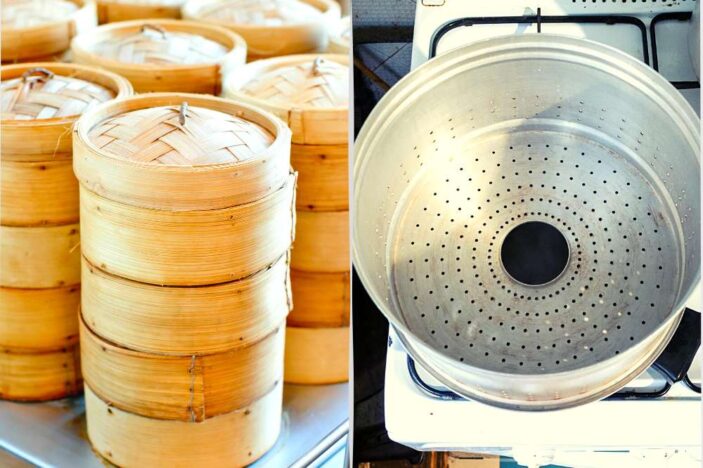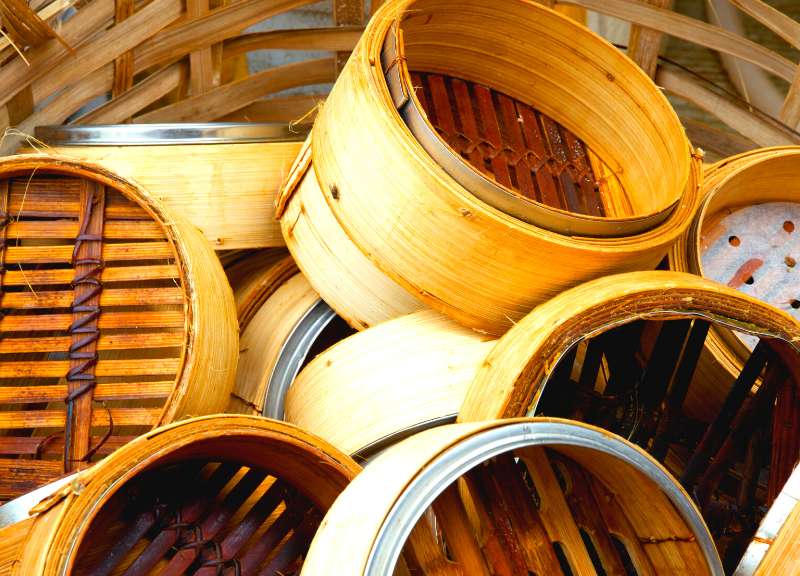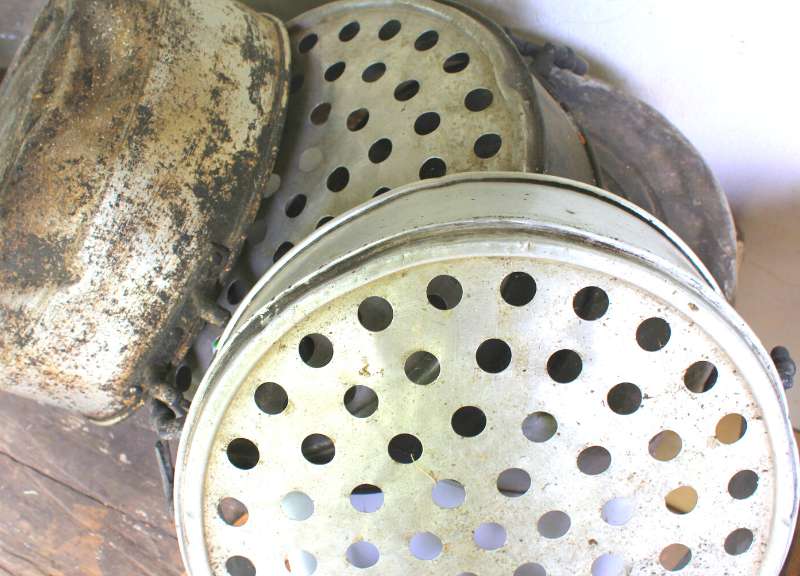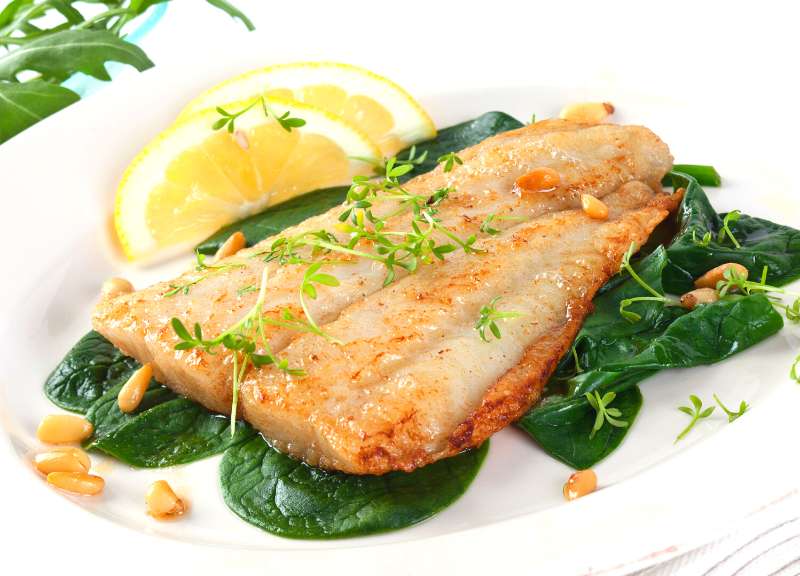Have you been torn between a bamboo steamer and a metal one? It’s understandable. There are so many types of steamers out there that you need help deciding which is the right fit for you.
As someone who has spent years researching, testing, and writing about kitchen tools, I’m here to help!
I’ll break down the crucial differences between bamboo vs. metal steamers in this article.
Together we’ll explore factors such as build quality, the efficiency of heating, usage with different materials like clay pots or woks, effectiveness in retaining flavor in food items, etc.
So even if you have yet to learn much about these two types of steamers, by the end of this article, you will have all the knowledge needed to decide which style is best for your cooking needs!
Let’s get started!
Bamboo Vs. Metal Steamer: Advantages of Bamboo Steamers

Bamboo steamers are an excellent tool in the kitchen if you’re looking to prepare healthy dishes quickly and easily. These nifty devices streamline the cooking process and offer a range of benefits that make them a great addition to any busy household.
A Healthy Alternative
One of the main advantages of bamboo steamers is their ability to lock in flavor, texture, and color while keeping food light and healthy.
Using moist heat instead of oil or butter, food stays low-fat and retains its original taste without sacrificing any vitamins or minerals essential for maintaining good health.
Cooking with water helps reduce fat absorption, so your meals will be delicious yet guilt-free!
Versatile Cooking Options
Another benefit of bamboo steamers is that they allow you to get creative when preparing meals.
Thanks to modern innovations such as double-tiered designs, you can even cook different types of food at once (think dumplings on top while the soup simmers below).
This means less time spent juggling multiple dishes in the kitchen. Leaving more time for friends and family.
Also read: How To Steam Fish In A Bamboo Steamer?
Disadvantages of Bamboo Steamers
Bamboo steamers are often seen as a healthy and convenient way to cook food but have certain drawbacks. Here are some disadvantages of using a bamboo steamer:
Difficult to Clean

Cleaning a bamboo steamer can be tricky because the woven surface easily traps oils and other residues from cooking. As it’s made of natural materials, hot water should never be used to clean.
This can cause discoloration and shrinkage. Instead, the best approach is to use cold water and mild detergent or soap after each use to avoid any build-up over time.
See also: How To Clean A Food Steamer?
Risk of Cross-Contamination
When using reusable pieces like these for cooking, there is always the risk that harmful bacteria could contaminate your food if you don’t take appropriate steps during preparation and storage.
To reduce this risk, make sure that you thoroughly wash your steamer before each use with warm soapy water.
Additionally, separate raw foods from cooked items while prepping meals to prevent cross-contamination between them during cooking.
Not Environmentally Friendly
Although bamboo is considered a sustainable material, there’s no denying that using disposable containers for takeout orders or plastic wrap for leftovers will have a more eco-friendly impact on our environment than traditional methods.
This requires regular rewashing of multiple pieces whenever you want to cook something new.
Size Limitations
The size limitations of most bamboo steamers mean they can only hold larger quantities of food at a time.
It makes them unsuitable for preparing big batches in one go or accommodating large family dinners without simultaneously having multiple levels at work (which also increases cleaning duties).
Advantages of Metal Steamers
More and more people are turning to metal steamers for various reasons. From their sustainable, eco-friendly nature, they can easily be used for multiple purposes in the kitchen.
Here we look at some of the advantages of using metal steamers.
Eco-Friendliness
One key benefit of using metal steamer pots is that they are incredibly eco-friendly.
Unlike many other cooking methods, when you opt for stainless steel or aluminum steamers, there’s no need to worry about potentially hazardous compounds such as those found in plastic materials seeping into your food during heating.
This means not only is it better for your health but also better for our planet!
Multi-Purpose Use
Investing in a good quality steamer pot made from durable material such as stainless steel or aluminum will last you an eternity.
It will become something other than another piece of disposable cookware like so many others do today!
What’s more, these types of pots are multi-purpose and can withstand high temperatures without leeching dangerous compounds into your food.
You can use them on the stovetop and even in the oven, making them perfect for roasting vegetables or baking cakes!
Versatility
When discussing versatility within cooking appliances, nothing compares with metal steamers.
Apart from being able to cook all sorts of dishes, including seafood and vegetables, they provide great options for washing clothes too!
Believe it or not, its ability to resist high temperatures without losing shape over time makes this pot ideal for stovetops and laundry sinks!
Easy Cleaning & Maintenance
Finally, one major advantage people often overlook when investing in stainless steel or aluminum steamers is how easily they are clean compared with other materials such as ceramic or glassware.
Thanks to their hard-wearing design, less mess is created while cleaning up after meals, and no fear of bacteria build-up.
These types make fantastic choices when looking out for something long-lasting yet convenient enough at the same time.
Disadvantages of Metal Steamers
While metal steamers are a common option because they’re durable and easy to clean, you should consider some noteworthy drawbacks before investing in one for your home.
Corrosion Risk

A third issue associated with using metal steamers is corrosion risk due to exposure to water (which happens inevitably during cooking processes) on unprotected surfaces within these appliances.
This makes them prone to rusting over extended usage times without proper maintenance being carried out regularly by users themselves (such as drying off any wet spots after each session).
Rust build-up affects how well your steamer works and poses health risks. So take extra care when cleaning these products should always be done each time thoroughly.
Poorly Constructed Models
Another disadvantage associated with metal steamers is their construction quality. Often cheaper models will have issues such as loose parts or wonky handles which might make them difficult to use accurately for certain types of food items (such as small pieces like shrimp).
Similarly, poorly constructed steamers may need help maintaining even heat distribution throughout their interiors, leading to unevenly cooked food items!
Therefore it pays off, in the long run, to invest more money into purchasing higher-quality models that will last longer without needing repairs or replacements.
Related post: Bamboo Steamer vs. Rice Cooker Comparison.
Types of Food That Can Be Cooked In a Bamboo Steamer
Vegetables
Vegetables are one of the simplest yet most delicious things you can prepare in a bamboo steamer.
From leafy greens like spinach and kale to heartier selections like potatoes and carrots, there are many possibilities for adding flavor without compromising nutrition.
All you need to do is place your vegetables into the upper tier of your steam basket with seasonings such as garlic, ginger, or herbs for an added kick!
See: What Can You Cook in a Steamer?
Fish Fillets

Fish fillets are ideal for those looking for something light but packed with protein-rich goodness.
Simply place your fish onto parchment paper which will help keep it moist. Then put it onto one of the lower tiers in your steamer basket before covering it with another layer of parchment paper.
Add extra seasoning here, such as lemon juice or white wine, before sealing it shut with kitchen foil. Just remember not to overfill or overcrowd your basket so that each piece gets ample exposure to heat!
Eggs
A bamboo steamer isn’t just useful for savory dishes; you can also use them for cooking eggs!
Whether boiled or scrambled, fill up one tier with water and place eggs into separate compartments within this layer before closing the lid securely (it’s best not to lay any other items on top).
Then wait until they have cooked through before enjoying.
Types of Food That Can Be Cooked In a Metal Steamer
The possibilities are endless when it comes to cooking with a metal steamer. From traditional dishes like dim sum and dumplings to tasty vegetable medleys and even sweet desserts, there’s something for everyone in this convenient kitchen tool.
Whether you have an electric or stove-top model, here is a quick guide on some amazing food that can be made using your metal steamer.
Dim Sum and Dumplings
If you’re looking for a unique way to enjoy classic Chinese cuisine, look no further than dim sum and dumplings!
Countless varieties are available, ranging from savory pork buns to sweet custard tarts. The best part about cooking these treats in your steamer is that they turn out fluffy and tender every time.
Plus, using parchment paper or banana leaves helps keep them moist, so they don’t dry out during steaming.
Vegetable Medleys
Another great way to get creative with your metal steamer is by making delicious vegetable medleys!
This cooking method preserves vitamins and minerals better than boiling or microwaving foods and locking in flavor without adding extra fat or oil.
Try experimenting with combinations such as carrots, celery, bell peppers, and onions cooked with herbs and spices like garlic powder or cumin. Yum!
If you love potatoes too, feel free to add chunks of those into the mix before covering everything tightly with aluminum foil so it won’t escape during the steam cycle.
Sweet Treats
Have you ever wondered how people make perfectly fluffy cakes without an oven? Well, now you know – they use their metal steamers instead!
This delightful dessert option will give any cake lover something new to try. Soft sponge cakes topped off with fresh fruit compotes will melt right in your mouth after being cooked gently inside the vessel for under 10 minutes (depending on size).
Even simpler options like rice pudding can be made quickly, making them ideal for busy days when time isn’t on your side, but you are still craving something sweet after dinner… what could be better?
Important Considerations When Choosing Between a Bamboo or Metal Steamer
If you’re a fan of steamed food, you know that having the right tools is crucial to achieving the perfect texture and flavor. Both have pros and cons, so it’s important to consider your needs before deciding.
Size Considerations
Size is one of the first things to consider when choosing between a bamboo or metal steamer. Bamboo steamers come in various sizes.
From small ones that can fit over a single pot to large ones that can hold multiple dishes simultaneously. Meanwhile, metal steamers usually come in one size only but may offer adjustable racks.
See also: The Best Vegetable Steamers.
Material Quality
Another key consideration is material quality. Bamboo steamers are made from all-natural materials, which many people prefer because they worry about chemicals leaching into their food during cooking.
However, bamboo wears out quickly compared to the stainless steel options available.
Maintenance Needs
Regarding maintenance needs, bamboo steamers require more attention than their metal counterparts do.
They should be thoroughly washed and air-dried after each use before being stored away properly. On the other hand, Metal Steamers can be easily cleaned by washing them with soap and water.
Durability & Lifespan
A comparison between durability & lifespan would pit metal steamers versus bamboo steamers as both last longer than plastic alternatives.
However, stainless steel offers robust longevity and ease of cleaning, whereas bamboo tends to be less long-lasting due to its natural decomposition process over time.
Cooking Efficiency
Lastly, it would be best to consider cooking efficiency variables when choosing any option. While using Metal Steamer, you need less water than bamboo.
Metal traps heat better, which helps cook food faster. Bamboo takes more time (due to its porous surface) and requires significant added moisture that potentially affects the final taste.
Food Safety Tips When Using a Bamboo or Metal Steamer
Food safety is an essential aspect of any meal preparation process. Whether a professional chef or cooking at home, keeping your food safe from contamination is crucial for your and your family’s health.
Proper Cleaning Techniques
It’s important to clean your steamer thoroughly before every use. Start by washing it with hot soapy water using a non-abrasive sponge or cloth. Rinse the steaming basket thoroughly with warm water and pat dry completely before storing it.
Be Mindful of Cross-Contamination
Cross-contamination occurs when bacteria spread from one food product to another through contact. To prevent this, always group similar foods while steaming them and avoid mixing raw meat products with veggies or cooked items.
Don’t Overcrowd Your Steamer
One common mistake many must correct when using steamers is overloading them with too much food. Not only does this increase cooking time, but it also leads to unevenly cooked meals that might harbor harmful bacteria.
Check Food Temperatures
Check the internal temperature of cooked meats using a reliable thermometer; they should reach at least 165°F (74°C) to kill off any bacteria in them.
Store Cooked Foods Safely
Finally, after cooking your meals correctly, ensure leftovers are stored safely in sealed containers in the refrigerator within two hours to prevent further bacterial growth.
Bamboo Vs. Metal Steamer: In conclusion
When using bamboo or metal steamers for preparing meals, following these food safety tips will help ensure that all dishes are delicious and healthy for consumption without causing harm caused by bacterial infections due to cross-contamination risks.
Keep things simple yet effective by cleaning properly before each use and watching out for signs such as overcrowding while checking temperatures during cooking and storage conditions afterward.
Happy Cooking!


